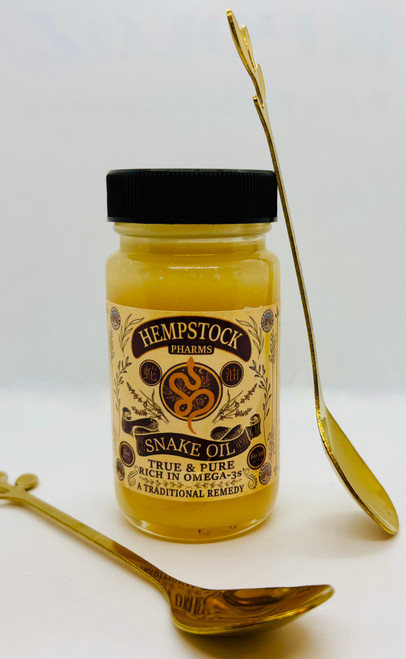Horse oil, traditionally used in various East Asian countries, has been celebrated for its natural benefits. It is derived from the fat of horse meat and is rich in essential fatty acids, including linolenic acid, which resembles the lipid structure of human skin. Here are the benefits and potential health care uses of pure horse oil:
Benefits of Pure Horse Oil
- Deep Moisturization: Horse oil is known for its superior hydrating properties, making it an effective remedy for dry and flaky skin.
- Anti-Inflammatory: It contains linolenic acid, which helps reduce skin inflammation, redness, and irritation.
- Skin Healing: Known for its ability to accelerate wound healing, it can soothe minor cuts, burns, and abrasions.
- Anti-Aging: The oil is rich in antioxidants and helps to reduce the appearance of fine lines and wrinkles by promoting skin elasticity.
- Skin Barrier Repair: Its structure mimics the skin's natural sebum, allowing it to repair the skin's protective barrier effectively.
- Non-Comedogenic: Horse oil absorbs quickly without clogging pores, making it suitable for oily or acne-prone skin.
- Natural UV Protection: It offers mild protection against harmful UV rays due to its lipid content.
Health Care Uses
- Eczema and Psoriasis Relief: Horse oil can alleviate itching, redness, and scaling associated with these conditions.
- Scar Reduction: Regular use of horse oil can help minimize the appearance of scars and stretch marks.
- Burn Treatment: Applied to minor burns, horse oil can soothe pain and promote faster healing.
- Cracked Heels and Dry Hands: It provides intense hydration and repair for extremely dry areas of the body.
- Hair and Scalp Care: Used as a hair treatment, it can nourish the scalp, reduce dandruff, and improve hair texture.
- Lip Balm Substitute: Its hydrating properties make it an effective natural remedy for chapped lips.
How to Use Pure Horse Oil
- Topical Application: Apply a small amount to clean skin and massage gently. It's best used as a moisturizer or spot treatment.
- Hair Care: Massage into the scalp and hair as a mask, then rinse after 30 minutes for hydration.
- Lip Care: Dab a tiny amount onto lips for immediate relief.
Precautions
- Allergies: Perform a patch test before use to ensure no allergic reaction.
- Sustainability: Be mindful of sourcing, as ethical concerns may arise regarding the production of horse oil.
If used responsibly, horse oil can be a versatile addition to your skincare and health care routine.
1. Ethical Animal Practices
- Utilizing Byproducts: In Mongolia, horses are integral to traditional nomadic lifestyles. They are not raised primarily for their fat but are valued for transportation, milk, and meat. Horse oil is typically derived as a byproduct during meat processing, ensuring that no part of the animal goes to waste.
- Cultural Respect for Animals: Mongolian herders maintain a deep spiritual and cultural respect for their livestock. Horses are treated with care throughout their lives and are often free-ranging, living in natural, open pastures.
2. Sustainable Farming Practices
- Free-Roaming Herds: Horses in Mongolia are not confined to industrial farms. They graze on vast, open grasslands, reducing the need for intensive farming practices that can harm the environment.
- Low Environmental Impact: The nomadic lifestyle minimizes land degradation, as herders move their animals seasonally to avoid overgrazing any single area.
- Traditional Livestock Management: Mongolian herders rely on centuries-old practices to manage herds, reducing the need for industrial feed, antibiotics, or hormones.
3. Minimal Processing
- Natural Extraction Methods: Horse oil in Mongolia is often produced using traditional, small-scale methods. Fat is rendered through low-heat processes that preserve the oil's natural nutrients without introducing harmful chemicals.
- No Waste Approach: By using traditional methods, Mongolians ensure that every part of the animal is utilized, reducing waste and honoring the animal's life.
4. Support for Local Communities
- Empowering Nomadic Herders: The production of horse oil provides an additional income source for rural Mongolian families. This helps sustain their traditional way of life and promotes economic stability in remote regions.
- Fair Trade Practices: Many ethical producers work directly with herders, ensuring fair compensation and support for local communities.
5. Cultural Preservation
- Integration with Traditional Medicine: Mongolians have used horse oil for generations in their traditional medicine for its healing properties. By producing it ethically, they preserve cultural heritage and pass down traditional knowledge.
- Small-Scale Artisanal Production: Most horse oil production in Mongolia remains artisanal rather than industrial, ensuring a focus on quality, sustainability, and cultural authenticity.
6. Eco-Friendly Packaging and Distribution
- Some producers take additional steps to minimize environmental impact by using biodegradable or recyclable packaging. This aligns with global sustainability trends and reduces the ecological footprint.
Challenges and Considerations
While horse oil production in Mongolia often aligns with sustainable and ethical practices, it is essential to verify the source when purchasing. Look for certifications or brands that emphasize ethical sourcing, environmental sustainability, and community support.
By respecting cultural traditions and implementing sustainable practices, Mongolian horse oil production provides a model for ethical and eco-conscious use of natural resources.
This product does NOT contain cannabinoids.







